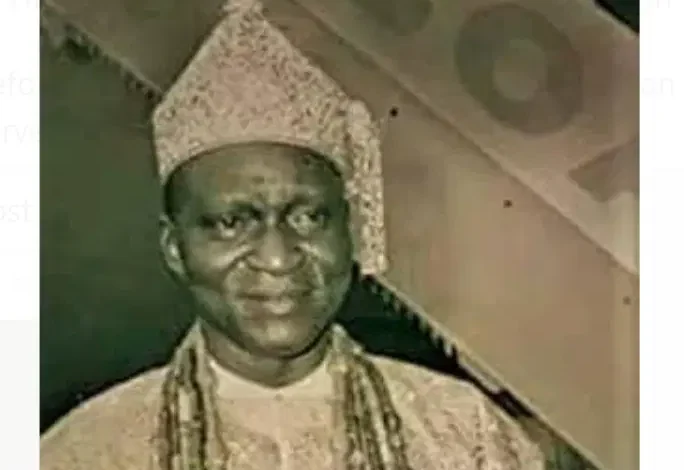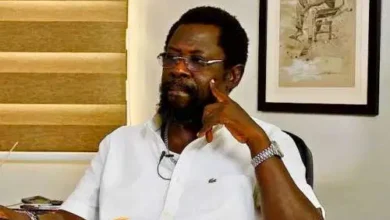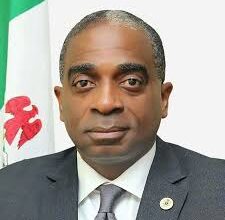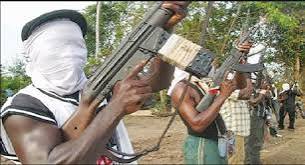Lagos was never a “No Man’s Land”, what Oba Oyekan said 35 years ago

Lagos is no man’s land? Not while Oba Oyekan lived!
The late Oba Adeyinka Oyekan, in February 1990 spoke about ghe debate on Lagos status.
A gentle monarch, yes, but when it came to Lagos, his message was thunderous: this land has owners, and the crown remembers.
While marking his Silver Jubilee on the throne, Oba Oyekan, then 79 years old, addressed this contentious claim with clarity. A team from Headlines Journal – a publication of the Daily Times stable sat with the monarch in his palace. The delegation included Editor Adams Aliu, Gabriel Ujah, and Dele Omojuyigbe, who would later become acting editor himself and years later, the same person who shared this forgotten interview on social media.
The Monarch Did Not Fidget.
“Lagos is not a ‘no man’s land’,” he said. “It belongs to some people, and they should be left alone to look after the place.”
That answer came in response to why he had pushed for the separation of Lagos Municipality from the Western Region, a move that ultimately led to the creation of Lagos State in 1967.
Oba Oyekan explained that if the Federal Government were ever to relocate the capital, the original people of Lagos needed to be in full control of their heritage, their land, and their destiny, not as squatters in their ancestral home.
“Eko Akete” Has a History and Owners
Asked about the origin and meaning of “Eko,” the name indigenes often use instead of “Lagos,” the Oba credited the Binis for naming the area during their trade missions in the 17th century.
“That is why it is referred to as Eko Akete Aromisalegbelegbe,” he said.
“The relationship between Lagos and the Binis has always been cordial. Some of my chiefs are even of Bini descent.”
He made it clear: there was never a time Lagos was empty, leaderless, or without owners. The city was a melting pot, yes, but not a void.
“Many Only Claim Lagos Until They Die”
When also questioned about Lagos’s supposed status as an “educationally disadvantaged” state, despite the presence of historic institutions like CMS Grammar School, King’s College, and Baptist Academy, the monarch gave his strict response.
“Many people claim Lagos in their early and middle ages,” he noted, “but when they are old, they return to their original bases. When they die, their bodies are taken to somewhere else for burial.”
He added that true Lagosians were few in number and often outnumbered academically by settlers who merely passed through.
Ikeja: Not Just a Capital, But a Kingdom
In 1997, seven years after that historic interview, acting editor Dele Omojuyigbe revisited the “No man’s land” rhetoric. This time, the spotlight was on Ikeja, the very capital of Lagos State.
He met with the Olu of Ikeja, Oba Momodu Illo, Olalomo I, who was a revered traditional ruler crowned in 1957 when the Ikeja stool was elevated to first-class status. He also spoke with leading chiefs, including Chief Ekundayo Moses, and visited the Ikeja Local Government for historical records.
What he found was unambiguous.
Ikeja was founded by Awori families who migrated from Ota. These founding families, Osoja, Amore, Maku, Afariogun, and Kusheri Moses, established distinct quarters, each contributing to the structure and soul of what became modern-day Ikeja. The town was named after Akeja-Onirogun, a deity from their Ota homeland.
By 1997, seven rulers had reigned over the land: Baale Olo, Baale Oladiti, Baale Oshoja, Baale Maku, Baale Faluyi Amore, Baale Afariogun, and finally Oba Momodu Illo.
Streets With Roots
Those familiar names Alausa, Omole, Oregun, Opebi, Ogba, Agidingbi, Onigbongbo are not simply bus stops or real estate. They are original villages, each with a lineage, history, and story.
By the last count in 1997, Ikeja consisted of 24 such villages: Alausa, Ogba, Agidingbi, Adekunle, Oloti, Omole, Onigbongbo, Onigbagbo, Sonibare, Coker, Onilekere, Onipetesi, Akiode, Ojodu, Oke-Ira, Opebi, Oregun, Olusosun, Aguda Titun, Wasimi, Idiroko, Ijaiye-Ogba, and Yakoyo.
Each name is a footprint and reminder of the people who settled there centuries ago.
History Doesn’t Lie
From Oba Oyekan’s interview in 1990 to the Olu of Ikeja’s documentation in 1997, the record is clear. Lagos has never been a “no man’s land.” It has hosts. It has heirs. It has history.
The city may welcome all, but it did not begin with all





